29 Authentic Greek Olives: Tasty Mediterranean Gems to Relish
Greek olives represent a culinary treasure deeply rooted in Mediterranean culture and tradition.
Their rich, complex flavors tell stories of sun-drenched landscapes and generations of careful cultivation.
Harvested with meticulous care, these small fruits embody the essence of grecian agricultural heritage.
Robust and distinctive, they carry nuanced taste profiles that range from delicately mild to intensely briny.
Each variety reflects unique regional characteristics, shaped by soil, climate, and time-honored harvesting techniques.
Some olives appear smooth and glossy, while others showcase textured, rustic appearances that hint at their authentic origins.
Passionate food enthusiasts appreciate these remarkable fruits for their incredible versatility and profound cultural significance.
Here are 22 authentic Greek olives that will transform your understanding of this remarkable ingredient:
Greek Olive Types That Bring the Mediterranean Home
Greek olives, from plump Kalamata to bright green Halkidiki, are treasures of the sun-drenched groves. Each type shines in salads, spreads, or simply enjoyed by the handful.
Elia Kalamatas
Kalamata olives are premium Mediterranean gems prized for their distinctive almond shape, deep aubergine color, and intense flavor profile.
Grown exclusively in southwestern Greece's Peloponnese region, these hand-picked olives mature fully before harvesting to ensure maximum taste complexity.
Unique brining techniques involving red wine or red wine vinegar enhance their rich, fruity character.
Robust and meaty, these olives boast thick skins and substantial size that set them apart from other olive varieties.
Traditional processing methods preserve their exceptional quality and authentic taste.
Greek farmers carefully select each olive to maintain optimal texture and flavor.
Culinary experts worldwide recognize Kalamata olives as a superior ingredient in salads, appetizers, and Mediterranean dishes.
Their versatility and distinctive taste make them a sought-after delicacy in international cuisine.
Prasines Elies Chalkidikis
Halkidiki olives are Greece's largest olive variety, celebrated for their robust green glossy skin and distinctive flavor profile that balances subtle fruitiness with a spicy undertone.
Exclusively produced from Hondrolia Chalkidikis olive trees in Chalkidiki Prefecture, these olives earn their nickname 'donkey olives' due to their impressive size.
Greek markets and international gourmet shops prize these olives for their firm, rich flesh and versatile preparation methods.
Consumers can choose from four unique styles: whole, pitted, crushed, and stuffed variations featuring fillings like almonds, red peppers, carrots, pickles, blue cheese, or garlic.
Each olive reflects the region's agricultural heritage and Mediterranean culinary traditions.
Their bright green appearance and complex taste make them a standout ingredient in salads, appetizers, and Mediterranean dishes.
Chalkidiki farmers carefully cultivate and process these olives to maintain their exceptional quality and reputation.
Throumpa Thassou
Throumba olives are prized Mediterranean delicacies native to Greece's Thassos island, distinguished by their unique natural fermentation process and remarkable flavor profile.
These distinctive black olives develop their signature taste through natural ripening on the tree, influenced by the Phoma oleae fungus that eliminates bitterness.
Traditional harvesting occurs from early November to mid-January, with workers carefully selecting fully ripe or overripe fruits by hand.
Mountain spring water washing and precise salt curing enhance the olives' complex characteristics.
Greeks have cultivated these olives for generations, valuing their exceptional quality and regional significance.
Local farmers meticulously grade the olives by size to ensure consistent preservation.
Throumba olives can be consumed directly from the tree, offering an extraordinary culinary experience.
Salt-curing transforms these olives into a gourmet delicacy appreciated worldwide.
Konservolia Amfissis
Konservolia Amfissis olives are prized Mediterranean table olives sourced from Greece's challenging Phocis mountain region.
Resilient olive trees of this unique variety thrive despite cool winter conditions in municipalities like Amfissa, Itea, and Delfi.
Farmers carefully harvest these olives by hand using traditional wooden sticks when fruits reach full ripeness.
Each olive represents generations of agricultural skill passed through local families.
Mountain terrain contributes distinctive flavor characteristics to these exceptional olives.
Small regional producers maintain traditional harvesting techniques unchanged for centuries.
Local growing conditions create robust, complex olive profiles treasured throughout Greece.
Mediterranean agricultural heritage shines through these carefully cultivated table olives.
Konservolia Artas
Konservolia table olives represent a unique olive variety cultivated in specific municipal areas of Epirus, Greece, thriving despite challenging agricultural conditions.
Grown in regions like Peta, Komboti, and Grammenitsa, these olives demonstrate remarkable resilience in wet soils and cold winter climates.
Farmers manually harvest the olives and carefully transport them to processing facilities for rigorous quality checks.
Skilled workers select premium olives and immerse them in brine containers for fermentation.
Green olives typically ferment for 20 to 60 days, while yellow and black varieties require four to five months of processing.
Fermentation transforms the olives' texture and flavor, creating a distinctive regional delicacy.
Temperature, soil composition, and careful handling contribute to the unique characteristics of these exceptional table olives.
Each stage of production reflects traditional agricultural practices specific to the Epirus landscape.
Konservolia Piliou Volou
Konservolia Piliou Volou olives emerge from olive trees nestled in Volos, Thessaly, with a distinctive Mediterranean-influenced flavor profile that sets them apart from other table olives.
These prized olives grow in a region characterized by dry summers and mild winters, ideal for olive cultivation.
Farmers carefully hand-harvest the olives in varying stages of ripeness, selecting them while green or when they reach a deep purple-black hue.
Processing involves treating the olives with caustic soda or salt solutions, depending on their maturity level.
Each olive carries a uniquely fruity and pleasantly sweet taste that complements various dishes.
Chefs frequently slice these olives over fresh salads or pair them with premium cheeses.
Their rich flavor and careful production make them a standout Mediterranean delicacy.
Konservolia Piliou Volou olives represent the essence of traditional Greek olive cultivation.
Throumpa Ampadias Rethymnis Kritis
Throuba olives are prized Cretan olives that naturally fall when fully ripe, distinguished by their unique ripening process involving the Phoma oleae fungus.
Mediterranean conditions in Rethymnon prefecture create ideal growing environments for these exceptional olives.
Black in color and featuring a meaty texture, these olives develop without bitterness through an organic maturation method.
Island farmers collect the olives using special nets when they drop from trees.
Fertile soil and specific climate contribute to their distinctive flavor profile.
Minimal human intervention ensures the olives remain pure and naturally processed.
No additional treatment is needed beyond careful selection.
These olives represent a traditional Greek agricultural practice with minimal processing.
Konservolia Rovion
Rovies table olives are premium Greek olives prized for their exceptional sweetness and complex flavor profile.
Local farmers carefully cultivate these olives in central Greece's unique microclimate using traditional harvesting methods.
Workers hand-pick olives from Konservolia trees in the Rovies municipality under optimal growing conditions.
Processing involves a specialized technique of treating olives with caustic soda to reduce bitterness for twelve hours.
Lactobacillus bacteria are then introduced during brining to develop the olives' distinctive fruity aroma.
Fermentation transforms the initial bitter taste into a pleasant sweetness that distinguishes these olives.
Gourmet restaurants and home cooks often serve these olives as appetizer accompaniments or garnishes for salads and pasta dishes.
Mediterranean cuisine enthusiasts appreciate Rovies olives for their unique texture and nuanced flavor characteristics.
Corfu Olive (Lianolia Kerkyras)
Lianolia Kerkyras represents an exceptional olive variety native to Corfu's historic landscapes, featuring ancient trees that span hundreds of years of agricultural heritage.
Kerkyras olive trees produce small to medium fruits characterized by their elongated shape and remarkable oil content.
Greek farmers primarily harvest these olives for premium olive oil production instead of table consumption.
Unique characteristics include a distinctively fruity flavor profile and rich aromatic qualities that set this variety apart from other Mediterranean olives.
Island growers carefully cultivate these trees using traditional methods passed through generations.
Lianolia olives thrive in Corfu's specific climate and terrain, contributing significantly to regional agricultural traditions.
Local olive oil from these trees carries a special regional identity and complex taste.
Each olive tells a story of Corfu's agricultural legacy and environmental conditions.
Koroneiki
Koroneiki olives are Greece's liquid gold standard, producing the world's most prized extra virgin olive oil with intensely fruity and peppery characteristics.
Small green olives transform into dark purple gems during ripening, growing on compact, hardy trees adapted to harsh Mediterranean landscapes.
Farmers carefully harvest these olives while still green to ensure maximum oil quality and flavor intensity.
Koroneiki trees thrive in dry, rocky terrains and withstand extreme temperatures, making them ideal for challenging Greek agricultural conditions.
Olive oil pressed from these tiny fruits boasts exceptional nutritional value and a distinctive sharp, pungent taste.
Regions like Crete and the Peloponnese specialize in Koroneiki olive cultivation, supporting generations of traditional agricultural practices.
Each olive delivers a concentrated burst of rich, complex flavors that define authentic Greek olive oil.
Greek producers consider Koroneiki olives a national treasure, celebrated worldwide for their superior culinary and health properties.
Throumba
Throumba olives are prized Greek salt-cured olives that develop unique flavor through natural tree-ripening and shriveling, transforming them into a gourmet delicacy.
Native to Greek islands like Thassos, Samos, Ikaria, and Crete, these small oval olives mature directly on branches until they naturally wrinkle and deepen in taste.
Their distinctive process reduces bitterness while intensifying a complex flavor profile featuring sweet and nutty undertones.
Farmers carefully allow the olives to dry naturally, which concentrates their rich characteristics and softens their texture.
Traditional preservation methods involve salting the shriveled olives, enhancing their robust taste and creating an exceptional Mediterranean treat.
Throumba olives work beautifully as standalone snacks or complementary ingredients in various Greek dishes.
Gourmet restaurants and home cooks prize these olives for their intense flavor and unique preparation technique.
Tsounati
Tsounati olives are a prized ancient Greek cultivar originating from Crete's landscape, representing centuries of agricultural heritage.
Minoan civilization first recognized these medium to large olives with their distinctive elongated oval shape.
Harvested olives transform from vibrant green to deep purple or black when fully ripe, signaling their maturity.
Their flavor profile stands out with a complex balance of fruitiness, mild bitterness, and a subtle peppery finish.
Tsounati olives excel in both table olive and olive oil production, offering versatile culinary applications.
Farmers carefully cultivate these olives across Cretan landscapes, maintaining traditional agricultural practices.
High-quality Tsounati olive oil complements numerous dishes, from salad dressings to cooking and finishing touches.
Mediterranean cuisine celebrates this olive variety as a testament to Greece's rich gastronomic traditions.
Adramytiani
Adramytiani olives are premium Aegean treasures cultivated in western Turkiye and Greek islands like Lesbos, renowned for producing exceptional olive oil with a smooth, slightly fruity profile.
These olives thrive in the coastal regions around Adramyttion, delivering rich, high-quality oil prized by regional culinary experts.
Farmers carefully harvest the olives to extract their distinctive essence, which enhances both cooking and finishing dishes.
Mediterranean cuisine benefits from the Adramytiani's distinctive flavor characteristics.
Olive oil production remains a critical economic activity for local communities.
Generations of agricultural traditions contribute to the careful cultivation of these special olives.
Regional microclimates support optimal olive growth and oil development.
Lesbos and Turkiye share deep connections through this remarkable olive variety.
Throumpa Chiou
Throumpa Chios olives are unique Mediterranean delicacies naturally fermented on olive trees without human intervention, developing exceptional flavor through a rare fungal process.
Native to Greece's Chios island, these dark purple olives mature directly on branches, falling into carefully positioned nets when perfectly ripe.
Special environmental conditions allow Phoma oleae fungus to transform the olives, eliminating their natural bitterness without additional processing.
Farmers collect the olives every three to five days, ensuring peak quality and optimal taste.
Mediterranean climate and fertile soil contribute to their distinctive characteristics.
Traditional harvesting methods preserve the olives' natural essence and complex flavor profile.
Each olive represents generations of agricultural expertise from Chios.
Small-batch production makes these olives a rare and sought-after delicacy among international gourmet markets.
Konservolia Atalantis
Konservolia olives represent a distinctive Greek olive variety cultivated in Phthiotis prefecture's lush landscapes.
Harvested meticulously by hand during two distinct stages - either when fully ripened and black or while still green - these large table olives undergo careful processing.
Workers transport the olives to specialized plants where black olives receive a caustic soda solution treatment and green olives are immersed in saltwater.
This strategic approach effectively reduces the olives' natural bitterness and prepares them for pickling.
Mediterranean cuisine values these olives for their robust flavor profile and versatile culinary applications.
Greece considers Konservolia olives a significant agricultural export with deep regional roots.
Traditional methods of harvesting and processing ensure each olive maintains its unique character and quality.
Farmers take great pride in maintaining the time-honored techniques that distinguish these exceptional olives.
Konservolia Stylidas
Konservolia table olives represent a prized Greek olive variety cultivated in Phthiotis prefecture's Mediterranean landscape.
Mediterranean warm summers and humid winters create perfect conditions for these olive trees to thrive.
Farmers carefully harvest the olives by hand during green or black ripening stages.
Workers transport the fresh olives in plastic crates to processing facilities.
Green olives undergo treatment with caustic soda solution to reduce bitterness, while black olives are processed using salt solution.
Each olive receives meticulous preparation before pickling.
Greek farmers follow traditional methods passed through generations to ensure high-quality olive production.
These olives showcase the region's rich agricultural heritage and commitment to exceptional olive cultivation.
Patrinia
Patrinia olives are a distinctive Greek olive variety prized for their rich, complex flavor and exceptional versatility.
Grown primarily in Western Greece, these medium to large olives transform from vibrant green to deep purple or black when fully ripe.
Their distinctive olive oil boasts a fruity aroma with herbal undertones and a balanced flavor profile featuring mild bitterness and a subtle peppery finish.
Western Greek farmers carefully cultivate these olives for both table consumption and premium oil production.
Patrinia olives contribute significant depth to Mediterranean cuisine through their unique taste characteristics.
Regional producers value these olives for their adaptable culinary applications.
The oil extracted from Patrinia olives works beautifully in salad dressings, cooking preparations, and as a finishing ingredient.
Each harvest celebrates the subtle nuances of this remarkable olive variety.
Agouromanako
Agouromanako olive oil represents a premium Greek olive variety harvested early in the Peloponnese region, delivering exceptional quality and intense flavor.
Small green olives from this tree produce robust oil with pronounced grassy and peppery characteristics.
Farmers carefully hand-pick these olives in October and November to preserve their unique properties.
High polyphenol content provides significant health benefits and remarkable stability.
Moderately vigorous trees thrive in rocky, well-drained soils despite challenging growing conditions.
Distinctive oil works perfectly for drizzling over salads, grilled vegetables, and meats.
Extra virgin production requires meticulous harvesting techniques.
Regional cultivation methods ensure superior olive oil quality.
Kolovi
Kolovi olives are a prized Greek olive variety native to Lesbos island with exceptional oil content and distinctive flavor profile.
These small to medium-sized olives thrive in the northern Aegean Sea's unique microclimate, producing rich, slightly nutty table olives with complex taste nuances.
Farmers carefully cultivate Kolovi olives using traditional methods passed through generations on Lesbos.
Multiple curing techniques like brining, dry curing, and oil curing enhance their natural characteristics.
Harvested primarily for both olive oil and table consumption, these olives represent an important agricultural product for the region.
Greek culinary traditions have long celebrated Kolovi olives as a key ingredient in regional dishes.
Mediterranean cuisine frequently features these olives in salads, tapenades, and traditional appetizers.
Sustainable agricultural practices continue to support Kolovi olive production on Lesbos, maintaining its cultural and economic significance.
Kollyreiki
Kollyreiki olives are a distinctive Greek olive variety prized for their rich flavor and nutritional benefits.
Mediterranean farmers cultivate these medium-sized, oval-shaped olives that transform from vibrant green to deep purple or black as they mature.
Olive oil producers value Kollyreiki olives for their high-quality oil with a complex flavor profile featuring fruitiness, moderate bitterness, and a signature peppery finish.
Greece's warm climate provides ideal growing conditions for these resilient olive trees.
Kollyreiki olives serve dual purposes as both table olives and olive oil production.
Their oil contains significant levels of heart-healthy monounsaturated fats and powerful antioxidants.
Generations of Greek farmers have carefully tended these special olive trees.
Small regional groves continue traditional harvesting methods that preserve the olives' exceptional quality.
Asprolia
Asprolia olives are distinctive Greek olive varieties prized for their unique transformation from light green to deep purple or black during maturation.
Greece cultivates these medium-sized oval olives across select regions, producing exceptional olive oil with complex flavor profiles.
Their name derives from "aspro," meaning white in Greek, which references their initial light coloration.
High-quality olive oil extracted from Asprolia olives offers a well-balanced taste featuring fruity undertones and subtle herbal notes.
Mild bitterness and a gentle peppery finish characterize the oil's refined flavor.
Farmers carefully nurture these olives through careful cultivation techniques.
Mature Asprolia olives develop rich, deep colors signaling optimal ripeness.
Olive oil producers value these olives for their exceptional quality and nuanced taste characteristics.
Dopia
Dopia olives are a rare Greek olive variety distinguished by their unique elongated shape and exceptional flavor profile.
Grown primarily on Zakynthos island, these olives transform from green to dark purple or black as they mature.
Mediterranean climate supports their growth, allowing the trees to thrive in warm, dry conditions.
Medium to large in size, Dopia olives deliver a rich and robust taste that makes them perfect for table consumption and olive oil production.
Their olive oil boasts a well-balanced flavor with a fruity aroma and subtle bitter undertones.
High-quality Dopia olive oil works beautifully in salad dressings, cooking, and as a finishing ingredient.
Native to Greece, these olives represent a distinctive culinary treasure.
Generations of local farmers have carefully cultivated this exceptional olive variety, preserving its unique characteristics.
The Most Respected Greek Olive Producers
Artisans and co-ops across Greece nurture olive trees for generations, producing fruit that’s rich, briny, and full of character. Meet the makers whose olives set the standard.
Agrovim
Iliada olive oil represents Greek agricultural excellence, delivering premium extra virgin olive oils from Kalamata's renowned olive groves.
Agrovim, established in 1994, transforms family agricultural traditions into world-class olive products through meticulous production methods.
Protected Designation of Origin certification guarantees authentic regional quality for each bottle of ILIADA olive oil.
Award-winning Kalamata PDO extra virgin olive oil stands out as their signature product, recognized internationally for exceptional taste and purity.
Since 1964, the company has expanded from a small regional producer to a significant agricultural enterprise in Messenia.
Organic olive and dried fig production complement their core olive oil offerings.
Modern processing techniques ensure consistent high standards across their product range.
Global distribution networks help Agrovim share Greek agricultural heritage with international markets.
Greek Olives: Must-Try Varieties and Producers
No Greek table is complete without olives. Dive into the best varieties and the producers who bring them to markets and homes worldwide.
Agrovim Olvion Kalamata Olives- Gold Line
Olvion Kalamata PDO olives represent premium Greek olives with exceptional regional quality and protected status.
These distinctive black olives grow exclusively in Messenia's specific geographical region under strict agricultural standards.
Agrovim carefully harvests each olive by hand when naturally ripened on trees to maintain optimal texture and flavor.
Mature olives undergo traditional processing methods without artificial preservatives.
Local farmers select only the highest quality fruit for marination.
Experts pack olives in premium brine solution and cover them with authentic Kalamata extra virgin olive oil.
Traditional cultivation techniques ensure superior taste and authentic Mediterranean character.
Each olive delivers a rich, authentic Greek culinary experience with deep, complex flavor profiles.
Agrovim Iliada Kalamata Pdo
Iliada Kalamata PDO olives represent premium Greek olives with exceptional quality and protected geographical origin.
Grown exclusively in Messenia's specific regions, these olives mature naturally on trees before careful hand-harvesting to maintain their delicate texture.
Rigorous traditional methods ensure each olive meets strict certification standards for preservation and flavor.
Farmers select only the ripest fruits with deep purple color and meaty consistency.
Agrovim processes these olives using traditional techniques without artificial preservatives.
Marinated in natural brine, the olives receive an additional layer of premium extra virgin olive oil for enhanced taste and longevity.
Mediterranean cuisine celebrates these olives as a signature ingredient with rich, intense flavor.
Greece's commitment to agricultural heritage shines through these carefully cultivated olives.
Agrovim Erato Kalamata Pitted Olives
Kalamata olives are premium Greek delicacies prized for their exceptional flavor and superior quality.
Dark purple with an elegant almond shape, these hand-picked olives naturally sun-ripen on trees before careful brining.
Grown exclusively in Greece's Peloponnese region, Kalamata olives carry a rich, fruity taste that distinguishes them from other olive varieties.
Mediterranean cuisine celebrates these olives as a versatile ingredient packed with robust nutrition and intense character.
Traditional harvesting methods ensure each olive maintains its delicate texture and distinctive taste profile.
Agrovim, a respected Greek producer, carefully selects and processes these olives without artificial preservatives.
Their deep color and meaty texture make them perfect for salads, appetizers, and classic Greek dishes.
Nutritionists praise Kalamata olives for their healthy fats and antioxidant properties.
Agrovim Olive Art Kalamata
Kalamata olives are premium Greek delicacies prized for their distinctive almond shape and intense fruity flavor.
Grown exclusively in Messenia's prefecture, these hand-picked olives ripen naturally on trees before careful harvesting.
Dark purple to black in color, they boast a rich, juicy texture that elevates Mediterranean cuisine.
Olive Art's brand ensures strict traditional processing methods maintain exceptional quality.
Crisp and aromatic, these olives complement salads, appetizers, and main dishes with their robust taste.
Cultivated under certified conditions, they represent Greece's agricultural excellence.
Each olive reflects generations of agricultural expertise.
Agrovim's commitment guarantees an authentic Greek culinary experience.
Elitsa Charana Kalamon Olives With Herbs In Brine
Kalamon olives are premium Greek delicacies hand-picked from Kalamata's legendary olive groves, celebrated for their robust flavor and exceptional quality.
Grown in southwestern Greece's fertile landscapes, these deep purple olives boast a distinctive meaty texture and rich, slightly tangy taste.
Traditional brining techniques infuse the olives with aromatic herbs, creating a complex flavor profile that elevates salads, charcuterie boards, and Mediterranean cuisine.
Salt-cured and carefully processed by artisan producers like Elitsa Charana, these olives maintain their intense flavor and smooth texture.
Glass jar packaging preserves their freshness and allows gourmet enthusiasts to enjoy authentic Mediterranean flavors.
Kalamata's unique microclimate and mineral-rich soil contribute to the olives' exceptional taste and worldwide reputation.
Generations of Greek farmers have cultivated these olives using time-honored methods passed down through family traditions.
Melira Mythogea Mix Kalamata & Green Olives
Mythogea Mix Kalamata & Green Olives blends two distinct olive varieties into a premium Mediterranean medley that celebrates intense flavor profiles.
Kalamata olives dominate with their dark purple richness and deep fruity undertones, offering a bold taste experience.
Green olives complement the mix with their firmer texture and slightly grassy, bitter notes that balance the overall flavor spectrum.
Mediterranean cuisine traditionally uses such olive combinations to enhance salads, appetizers, and antipasto platters.
Melira, a respected food brand, curates these olives with careful selection and quality standards.
Olive enthusiasts appreciate the nuanced taste journey created by combining these contrasting olive types.
Regional Greek agricultural practices contribute to the exceptional quality of these carefully sourced olives.
Consumers seeking authentic Mediterranean flavors will find this olive mix an exceptional culinary discovery.
What Curing Methods Are Used for Different Greek Olives?
Greek olives are prized worldwide not just for their flavor but also for the traditional curing methods that shape their unique tastes and textures. The curing process is essential to remove the natural bitterness and preserve the olives. Here are some common curing methods used across Greece:

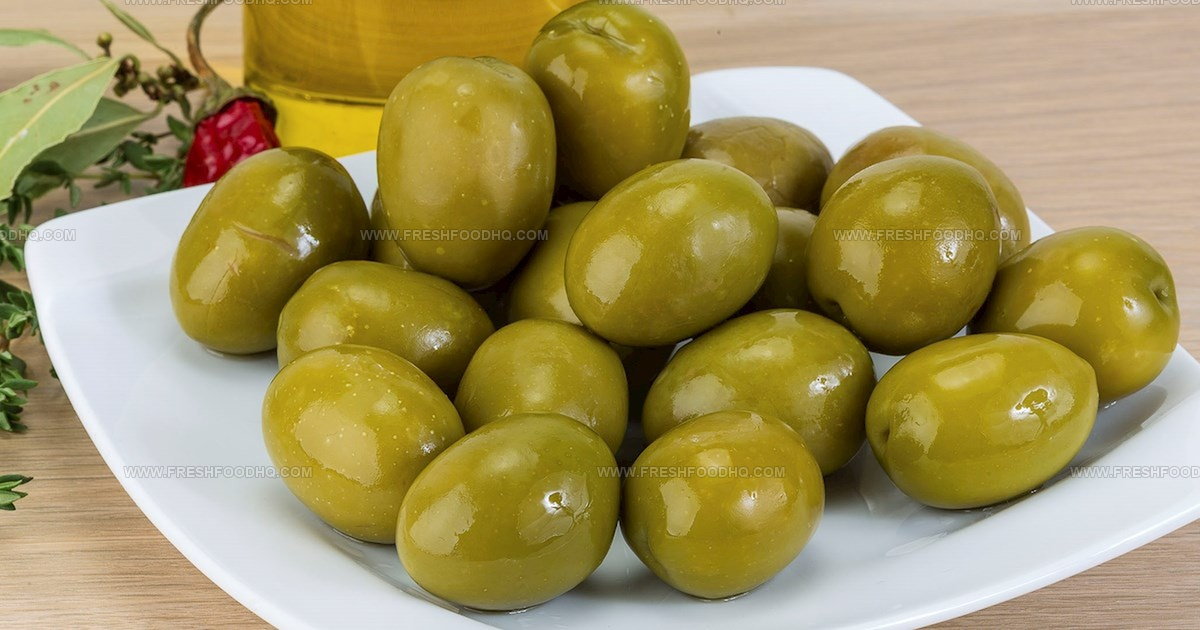
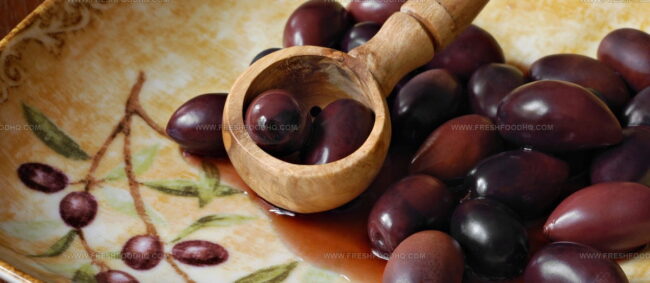
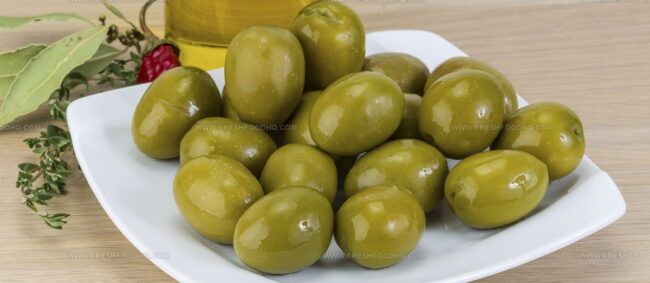

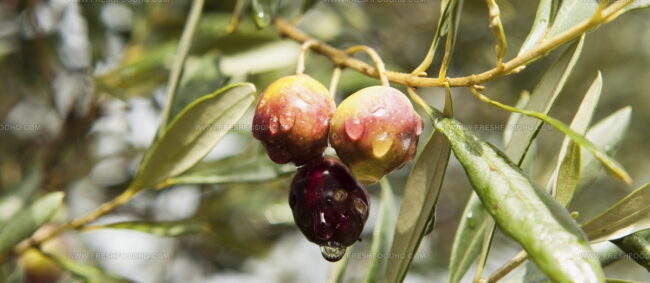
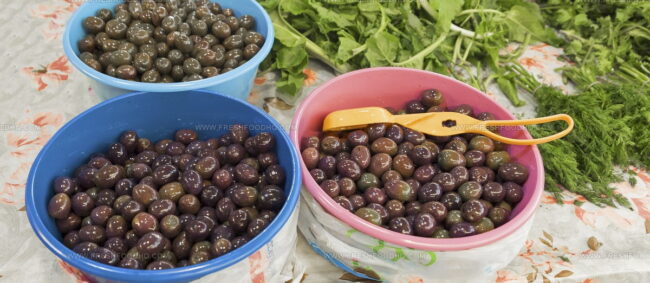
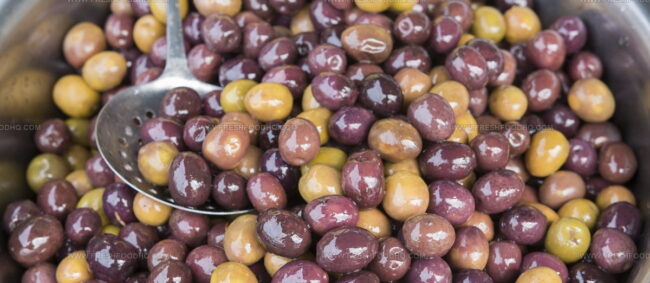
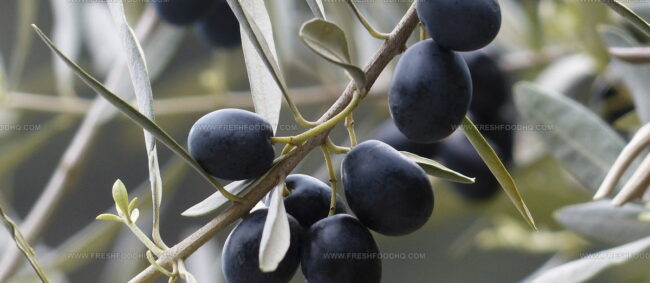
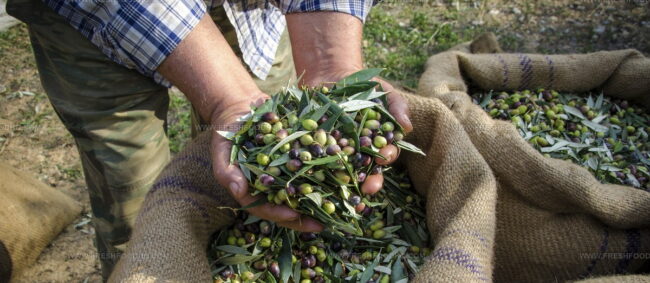
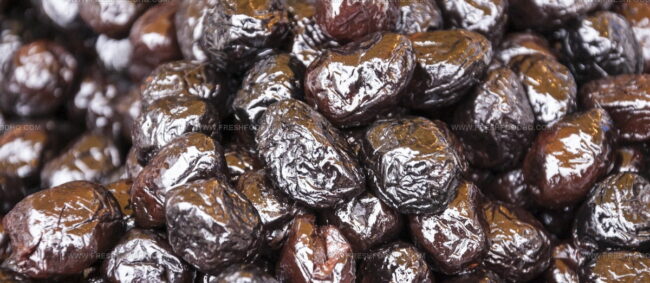
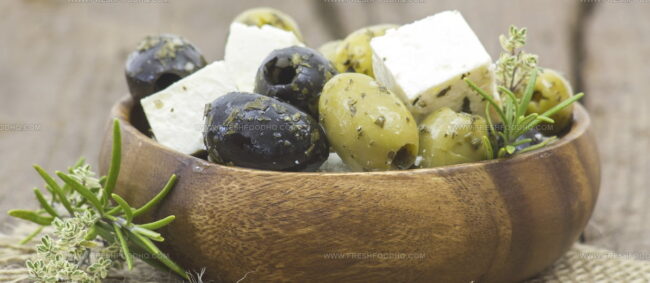
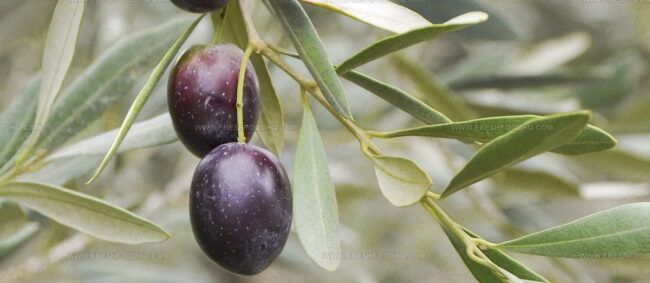
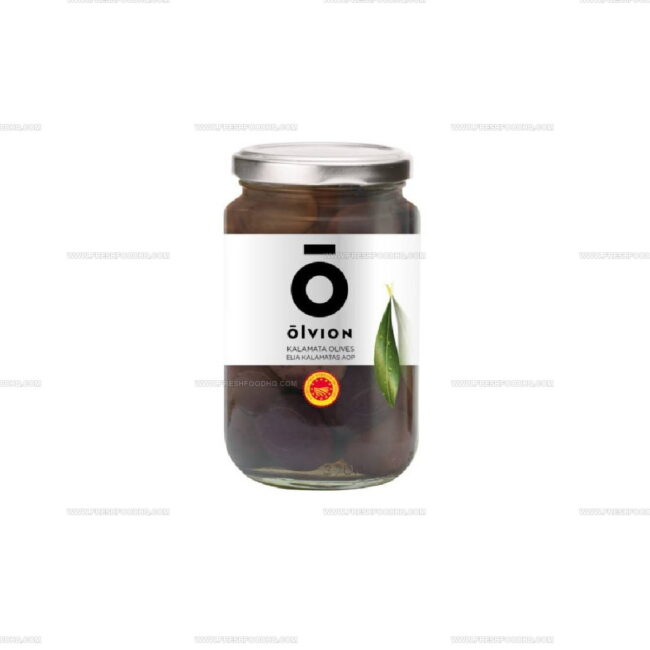
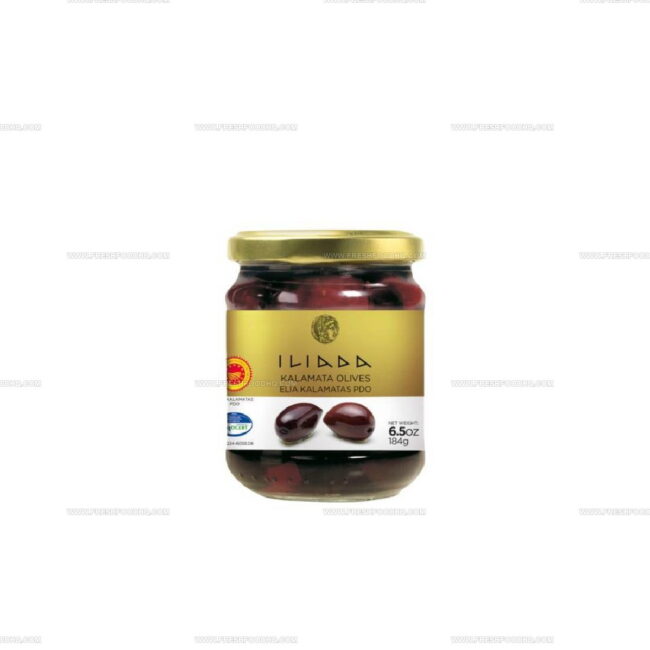
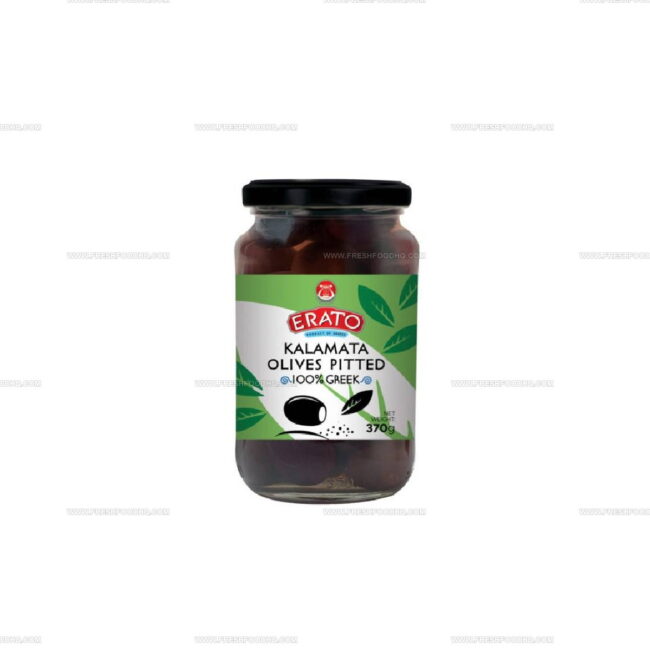
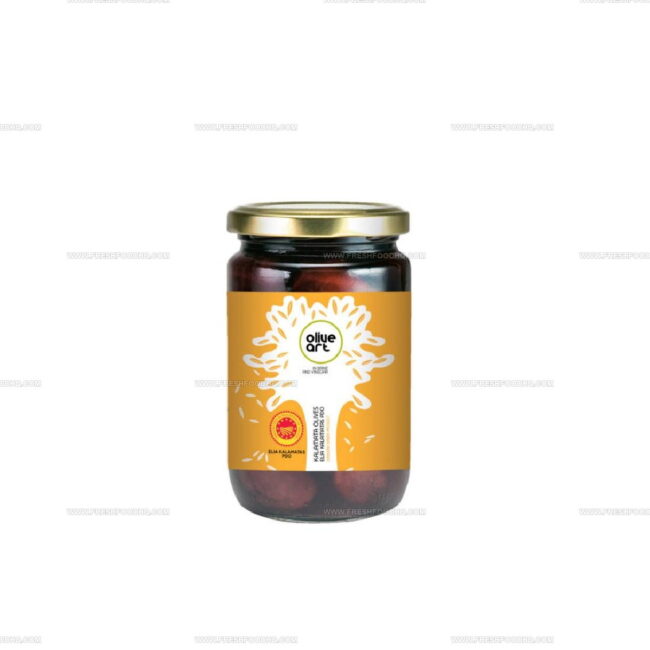
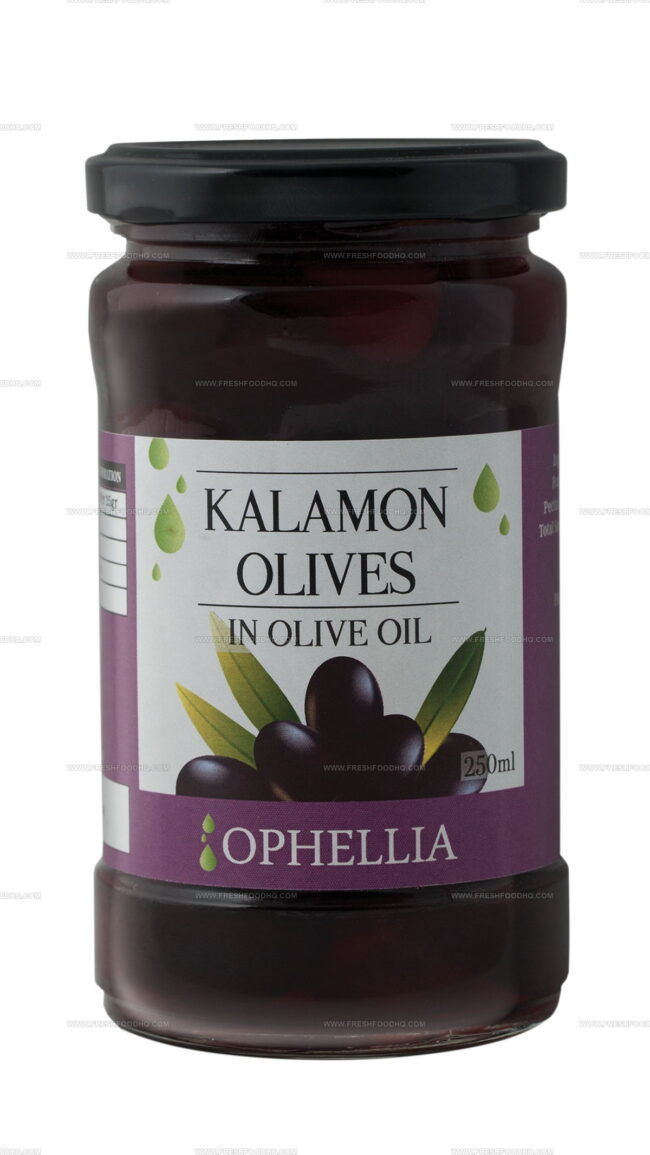
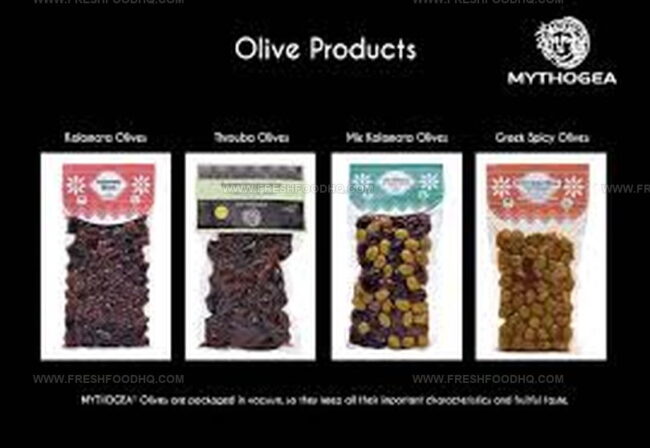
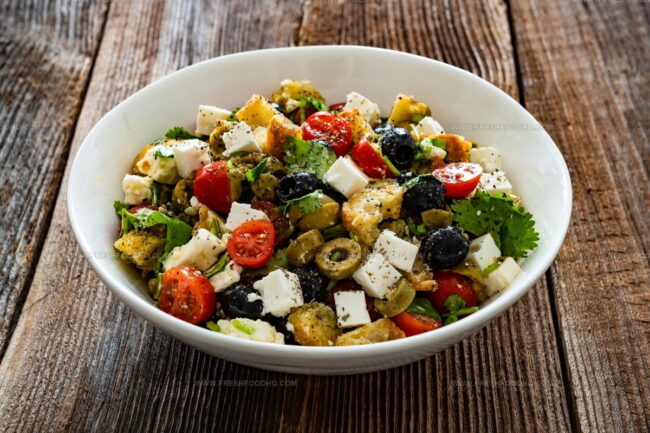
Ethan Caldwell
Founder & Culinary Innovator
Expertise
Farm-to-table cooking, Seasonal recipe creation, Culinary storytelling, Food photography and styling
Education
The Chef’s Academy (Indianapolis, IN)
Ethan didn’t just fall in love with food, he grew into it, surrounded by fields, farmers’ markets, and family meals that told a story.
After sharpening his skills at The Chef’s Academy, he took his passion straight into the farm-to-table movement, working side-by-side with local growers and seasonal flavors.
He believes every recipe should feel like a walk through a summer market: colorful, fresh, and full of possibility.
Outside the kitchen, Ethan’s idea of a perfect day is hiking mountain trails, digging into heirloom vegetables, and hosting casual dinners where seconds are always encouraged.